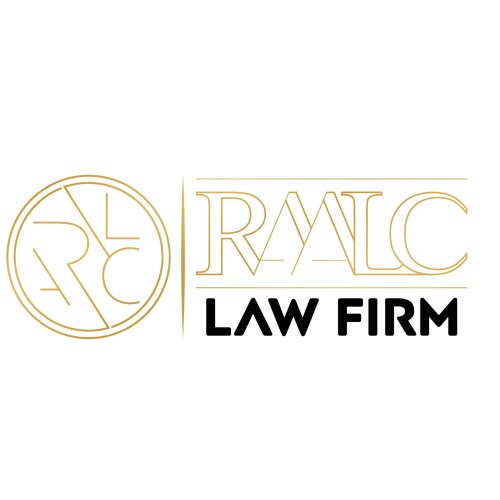Best Restructuring & Insolvency Lawyers in United Arab Emirates
Share your needs with us, get contacted by law firms.
Free. Takes 2 min.
Or refine your search by selecting a city:
List of the best lawyers in United Arab Emirates
About Restructuring & Insolvency Law in United Arab Emirates
Restructuring and insolvency law in the United Arab Emirates (UAE) is designed to manage situations where companies or individuals are unable to meet their financial obligations. The legal framework aims to provide structured procedures for debt restructuring, business recovery, creditor protection, and, when necessary, orderly liquidation. The UAE’s insolvency laws draw from both international best practices and local regulations. Over recent years, the UAE has modernized its approach to provide more flexible mechanisms for debtors and creditors, support business continuity, and encourage entrepreneurship, while balancing the rights of all parties involved.
Why You May Need a Lawyer
There are several scenarios where seeking legal advice in restructuring and insolvency is crucial in the UAE. You may require a specialist lawyer's guidance if:
- Your company is experiencing cash flow crises or is unable to repay its debts on time.
- You are a creditor concerned about collecting outstanding debts from a distressed business partner.
- You need to evaluate out-of-court settlements or formal restructuring plans.
- You wish to explore voluntary liquidation, bankruptcy, or court-supervised restructuring.
- Your business is under the threat of legal action from creditors or the authorities.
- You want to understand your rights and obligations under UAE insolvency law, especially concerning the treatment of assets and liabilities.
- You are a director or manager worried about potential personal liability under insolvency laws.
- You are exploring options to rescue, sell, or wind up a troubled company in accordance with local regulations.
A skilled lawyer can help minimize risk, navigate the complex legal system, and achieve the best possible outcomes for all involved.
Local Laws Overview
The UAE's primary legislation regarding corporate restructuring and insolvency is the UAE Bankruptcy Law (Federal Decree-Law No. 9 of 2016, as amended). This law applies across all Emirates and covers private companies, partnerships, limited liability companies, and civil companies-excluding government entities and companies licensed in the financial free zones which have separate regimes. Key features and relevant highlights include:
- Preventive Composition: Allows distressed debtors to enter into court-supervised agreements with creditors to restructure obligations and avoid full bankruptcy proceedings.
- Restructuring Procedures: Provides for the appointment of court-approved experts to develop restructuring plans and manage the process with creditor input.
- Bankruptcy Proceedings: Prescribes formal court-guided liquidation in cases where the business cannot be rescued.
- Protections for Debtors and Creditors: Includes mechanisms such as stays on legal action against the debtor and protection of certain assets during proceedings.
- Director’s Duties and Liabilities: Imposes obligations on company management to act responsibly in the period leading to insolvency, with provisions for personal liability in cases of negligence or misconduct.
- Public Announcements: Requires transparency through mandatory notifications and public registry filings at various stages of the process.
- Cross-border Insolvency: Addresses (to an extent) the recognition of foreign insolvency proceedings, although cross-border enforcement can be complex.
In addition to the federal framework, companies established in the Dubai International Financial Centre (DIFC) and Abu Dhabi Global Market (ADGM) are subject to their own dedicated, internationally-influenced insolvency regulations.
Frequently Asked Questions
What is the difference between restructuring and insolvency in the UAE?
Restructuring refers to efforts to reorganize a company’s debts, operations, or structure to regain financial stability, typically done before insolvency proceedings. Insolvency means that a company or individual is unable to pay debts as they become due, which may lead to formal bankruptcy or liquidation.
When should a company initiate restructuring or insolvency proceedings?
It is advisable to consider these proceedings as soon as the company experiences persistent financial distress or the risk of defaulting on its debts. Early action can increase the likelihood of recovery and reduce liability risks.
What are the main options available for a distressed business in the UAE?
The main options include preventive composition (negotiated restructuring), formal court-supervised restructuring, or, when recovery is not possible, initiating bankruptcy and liquidation procedures.
Can directors or owners face personal liability in insolvency cases?
Yes. Directors and managers can be held personally liable for losses if they fail to act responsibly, commit fraud, or breach statutory duties during financial distress or insolvency.
What protections are available for debtors during restructuring proceedings?
Debtors can benefit from court-ordered stays on creditor actions, protection from individual lawsuits, and time to negotiate restructuring plans without facing immediate asset seizures.
How are creditors' rights protected in UAE insolvency proceedings?
Creditors participate in approving restructuring or liquidation plans and can file claims for their dues. Some creditors may also form committees to represent their interests in court-supervised processes.
Can foreign companies or their branches benefit from UAE insolvency laws?
Foreign companies with a branch or significant business presence in the UAE may access local restructuring or insolvency relief, although specific cases can require legal guidance due to cross-border considerations.
What is the role of the court in restructuring or insolvency cases?
The courts oversee the initiation and conduct of proceedings, appoint experts or trustees, approve plans, resolve creditor disputes, and ensure compliance with statutory rules.
Are there alternatives to court-supervised procedures?
Yes. Companies may pursue out-of-court settlements or private negotiations with creditors, but these lack some legal protections provided by formal proceedings.
How long do insolvency or restructuring processes typically take in the UAE?
Duration varies depending on the complexity and chosen procedure. Preventive composition and restructuring plans may take several months, while full bankruptcy and liquidation can extend over a year or more.
Additional Resources
If you need more information or support regarding restructuring and insolvency in the UAE, consider consulting:
- UAE Ministry of Economy - Offers official information on laws, circulars, and public announcements.
- Dubai Courts and Abu Dhabi Judicial Department - Publicly list notices and schedules about insolvency cases.
- Chambers of Commerce in each Emirate - Provide support for businesses and promote resources regarding restructuring.
- Professional associations such as the Emirates Association for Accountants & Auditors.
- Legal advisory firms with dedicated insolvency and restructuring teams.
- DIFC and ADGM Registrars - For companies licensed within these jurisdictions.
Next Steps
If you believe you or your business are facing financial difficulties, it is important to seek professional legal advice as soon as possible. Here are recommended steps:
- Review your financial position and gather all relevant documents regarding your assets, liabilities, contracts, and ongoing disputes.
- Schedule a consultation with a lawyer who specializes in restructuring and insolvency in the UAE for a tailored assessment of your circumstances.
- Discuss your goals - whether recovery, negotiating with creditors, or preparing for formal proceedings.
- Follow your lawyer’s guidance about compliance with notification requirements and timely filing wherever necessary.
- Remain proactive. Early and transparent action often leads to better solutions and minimizes negative outcomes for both creditors and debtors.
Being familiar with your options and acting promptly can make a significant difference in securing the most advantageous result in challenging financial situations.
Lawzana helps you find the best lawyers and law firms in United Arab Emirates through a curated and pre-screened list of qualified legal professionals. Our platform offers rankings and detailed profiles of attorneys and law firms, allowing you to compare based on practice areas, including Restructuring & Insolvency, experience, and client feedback.
Each profile includes a description of the firm's areas of practice, client reviews, team members and partners, year of establishment, spoken languages, office locations, contact information, social media presence, and any published articles or resources. Most firms on our platform speak English and are experienced in both local and international legal matters.
Get a quote from top-rated law firms in United Arab Emirates — quickly, securely, and without unnecessary hassle.
Disclaimer:
The information provided on this page is for general informational purposes only and does not constitute legal advice. While we strive to ensure the accuracy and relevance of the content, legal information may change over time, and interpretations of the law can vary. You should always consult with a qualified legal professional for advice specific to your situation.
We disclaim all liability for actions taken or not taken based on the content of this page. If you believe any information is incorrect or outdated, please contact us, and we will review and update it where appropriate.
Browse restructuring & insolvency law firms by city in United Arab Emirates
Refine your search by selecting a city.

















